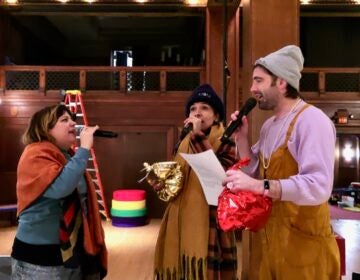After 180 years, remains return to ancestral Irish home
In the summer of 1832, 18-year-old John Ruddy of County Donegal, Ireland, boarded a ship bound for America to look for work.
“He was a buff guy,” said Janet Monge, the keeper of physical anthropology at the University of Pennsylvania Museum of Archaeology and Anthropology. “He would have rivaled a person who, in our world, would have been a professional athlete.”
Within eight weeks, though, he was dead. His entire crew was dead — perhaps of cholera, perhaps murdered — and buried under the railroad tracks they were laying at a place called Duffy’s Cut in Malvern, Pa.
This weekend, Ruddy will finally be laid to rest at home.
The bones were found by Bill Watson, a history professor at nearby Immaculata College, and his brother Francis, a priest. They are descendants of a railroad executive whose private papers indicated where the crew might be buried. For several years, the two have been working with archaeologists to extract and study the remains.
Because of spotty records and decomposing bones, it is next to impossible to determine exactly to whom the remains belong — except for the one set with teeth showing a rare congenital disorder: one fewer molar than normal.
“That weird variant is present in only one in 10,000 people,” said Monge. “So rare, in fact, that it put it in a different category. If we found another kind of variant that is more common, I would be less likely to have the suspicion that we were dealing with a member of the Ruddy family.”
Using DNA records and the ship’s passenger list, Monge and the anthropology team discovered that the congenital variant still existed in the Ruddy family of County Donegal. And so the match was made.
The bones of John Ruddy have been shipped there and will be ceremoniously buried Saturday. The other remains extracted from the railbed have been buried in Philadelphia’s West Laurel Cemetery.
WHYY is your source for fact-based, in-depth journalism and information. As a nonprofit organization, we rely on financial support from readers like you. Please give today.




